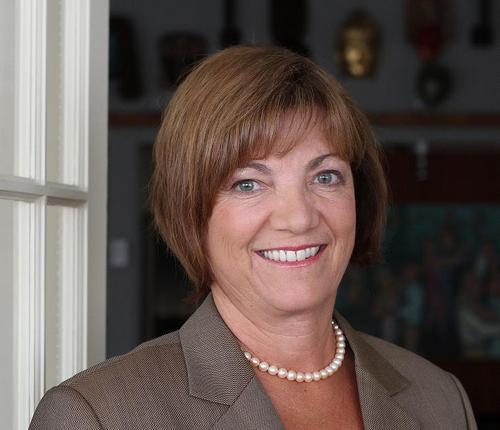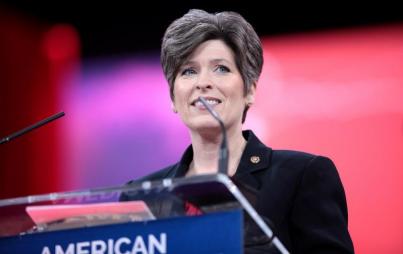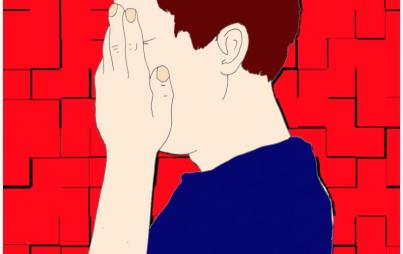
Sheila Copps (Credit: Wikimedia Commons)
One need only look at the Oval Office to see that when it comes to politics, we've got a bit of a gender discrepancy. In this weekly roundup, we focus on powerful political women in the news who are helping to break the proverbial glass ceiling of policy-making around the world. Politicos, move aside. We bring you . . . politicas. For more on female politicians to watch, click here.
 Aung San Suu Kyi
Aung San Suu Kyi
Known simply as The Lady, Suu Kyi has long been one of the most respected women on the global stage—an impassioned advocate for democracy in her human rights-abusing home country of Burma. She was placed on house arrest by the military junta in 1989 and, in the midst of being held captive for much of the following two decades, was awarded a Nobel Peace Prize. She's since become chairperson for the National League for Democracy, and is looking to become president—though current laws prohibiting foreign family members (she's married to a foreigner and has British children) make that technically impossible at present.
Not surprisingly, the U.S. has used the popular Suu Kyi as a key asset in its policy-building withing the country. And this relationship made the news this week, when Obama met with Suu Kyi in Burma.
The get-together is shedding on light on the human rights struggles Myanmar continues to face, as well as Suu Kyi's own challenges in translating activism into political action. Several outlets, including Politico and Vice News, have pointed out that Suu Kyi has not turned out to be as revolutionary as perhaps anticipated, doing little to denounce the ethnic cleansing of minority Rohingya Muslims in the country. Her relative complacency seems to stem from being, as Vice put it, no longer a peaceful protestor, but a powerful politician . . . and perhaps of trying to play her cards right to make a presidency possible.
In this sense, Suu Kyi is not unlike her meeting partner Obama; both are Peace Prize winners whose reputations have been tarnished as they move deeper into the political trenches. That Suu Kyi can be a part of this political reality as a woman is, in and of itself, a strange form of progress.
Sheila Copps
Speaking out about sexual abuse in a culture that often shames and shuns victims is never easy. Now imagine doing it as a prominent female politician in the cross-hairs of gender bias on the national stage.
This makes the recent action of former Canadian deputy prime minister Sheila Copps a particularly commendable and brave one. This week, she announced she was sexually assaulted twice in the beginning of her political career. In a column for the weekly paper "The Hill Times," she wrote about being raped by someone she knew in politics, and about another incident during—wait for it—a tour to talk about sexual violence against women.
“The incident occurred when we exited a hotel elevator after enjoying a group dinner following a day-long session in northern Ontario. I pushed back on my assailant, kicking him where it hurts, when he tried to force me up against a wall and kiss me.”
The statements came on the heels of two MPs from the Canadian Liberal Party getting suspended over allegations of harassment against women MPs, and are attached to a clear call for reformative action. “Unlike most workplaces, when harassment or assault does occur on Parliament Hill, aggrieved parties do not have the same access to due process as they would anywhere else,” she wrote.
Sometimes, it takes one brave voice to create systemic change. Here's hoping Copps' is that voice.
 Hillary Clinton
Hillary Clinton
Meanwhile, in Hillary-World, the peanut gallery grows ever louder. This week, Rudy Guiliani, he of the infamously unsuccessful presidential run in '08, decided he was the most qualified imaginable to give his fellow Republicans advice on how to beat Hills in her presumptive run. While his resume might be dubious, his advice was actually . . . well . . . pretty damn sensible. Which means it probably won't be listened to.
Said the former New York mayor:
“The wrong way is to be too aggressive, and be too mean, and to ever get personal. The right way to do it is on policy and on true contribution.”
Meanwhile, David Axelrod, the political advisor extraordinaire who helped bring Obama into office, offered a very backhanded compliment to Hillary, saying he thinks the public will go for something different than Obama, and that she is less "nuanced and attuned to complexity" than the current prez.
One wonders if Hillary is listening to any of this outside noise. Or if, perhaps, she's not complex enough to care.






